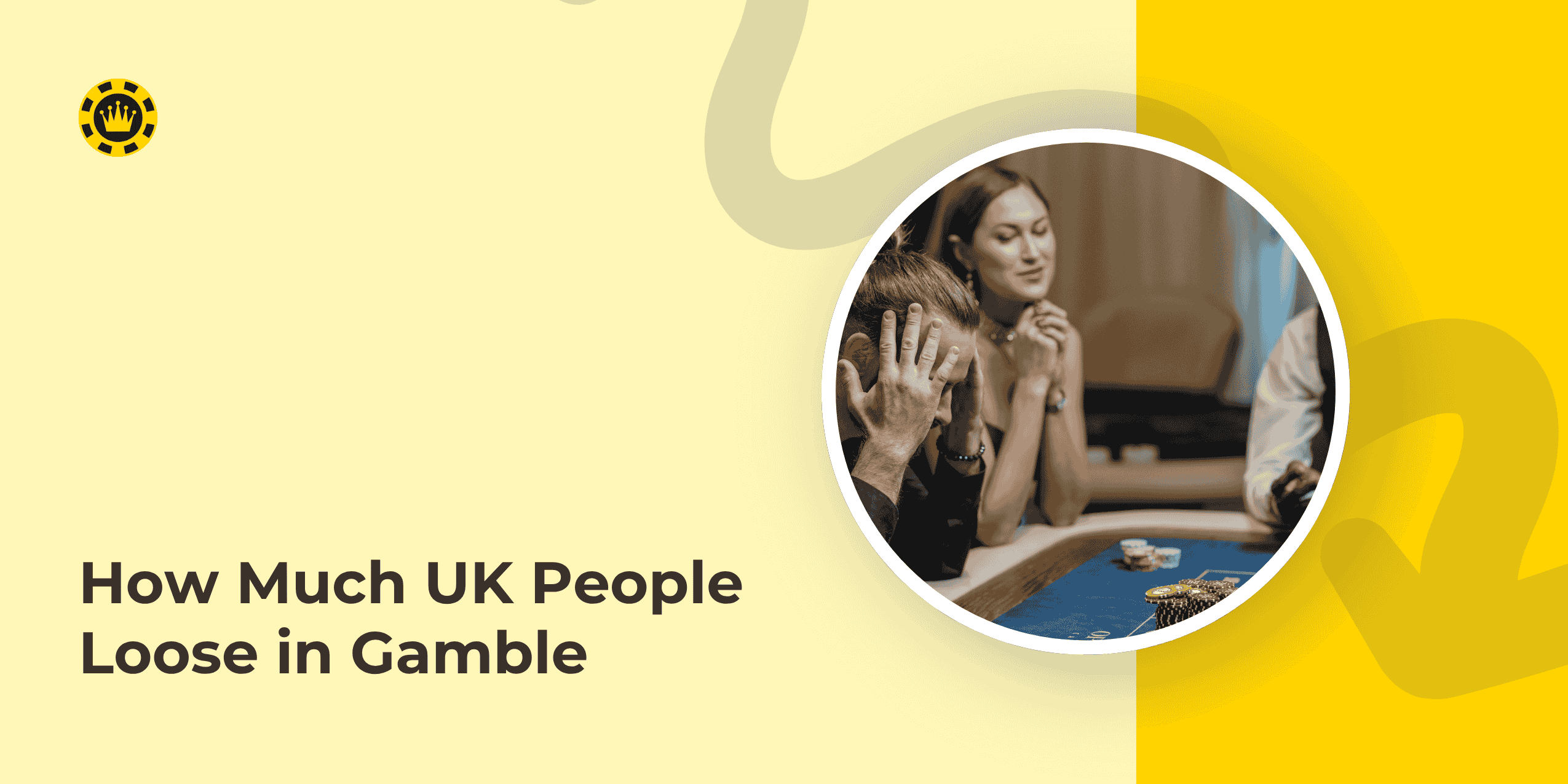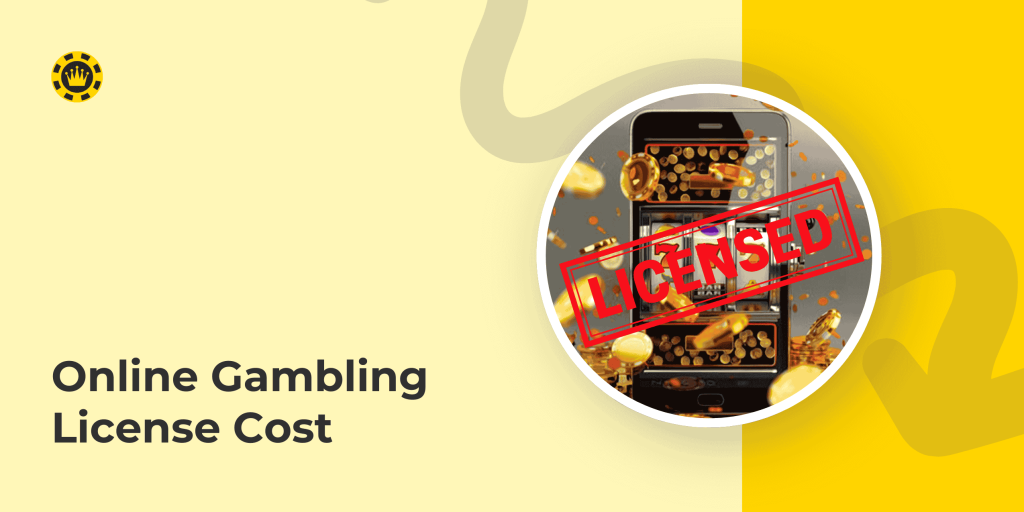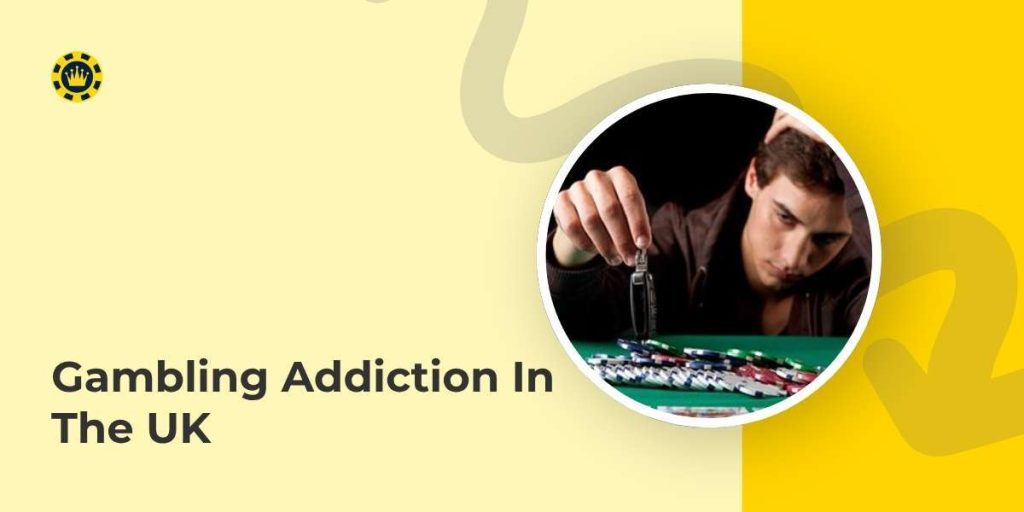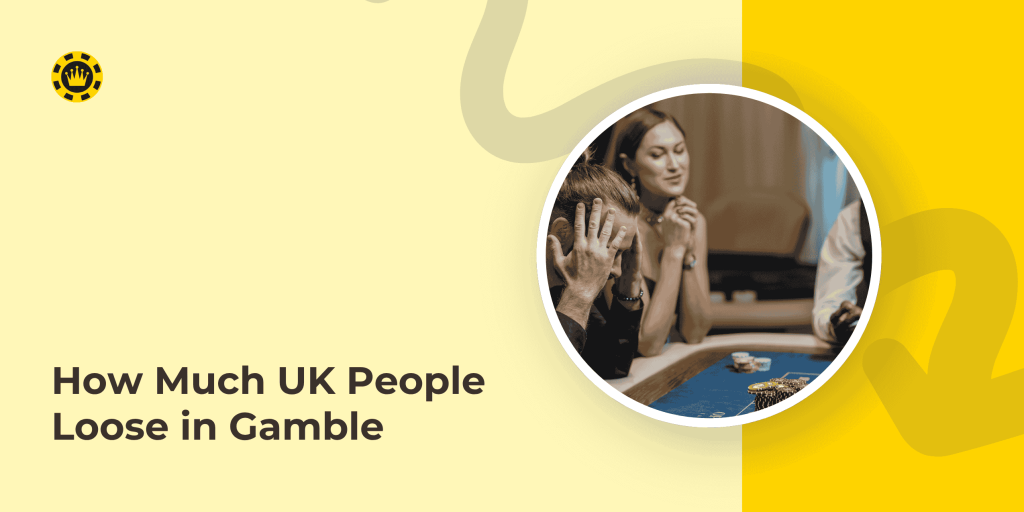Gambling Losses in the UK are adding up fast, with people losing over £2,000 a year on online gambling. Beyond personal losses, gambling harm now costs the UK government more than £412.9 million each year, showing the pressure it puts on public systems.
As gambling becomes easier to access, addiction is rising. Nearly 2,000 people were sent to NHS gambling clinics in just six months, raising questions around gambling income tax and tax on gambling winnings UK.
This guide explains UK gambling losses, average debt, and how rules like is gambling tax free and tax on lottery winnings UK connect to the issue.
How Much Does The Average Person Lose On Gambling In the UK?
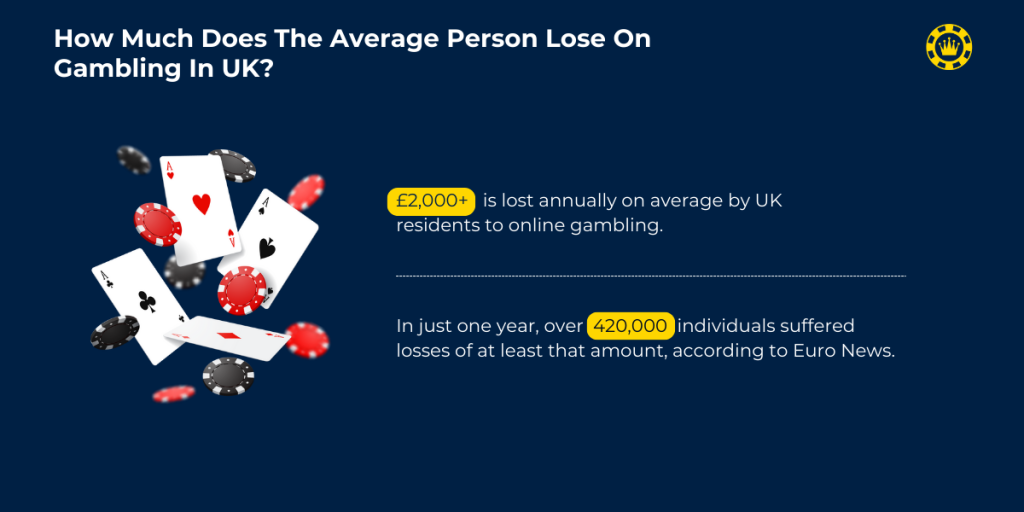
On average, people in the UK lose over £2,000 a year to online gambling.
According to Euro News, more than 420,000 individuals lost at least that amount in just one year.
The UK government also reported that harmful gambling costs the country £412.9 million annually in direct financial impact, highlighting how serious the issue has become.
Source: Euro News, The Guardian
On average, many UK gamblers lose thousands each year, with some racking up serious debt.
Data from seven major gambling firms revealed that around 129,000 people lost over £2,000 annually. However, this only reflects about 37.5% of the online gambling market, so the real numbers are likely much higher.
When it comes to slot games, the numbers are even more worrying. Around 50,000 players spent the equivalent of eight full days playing slots in a year, losing an average of £5,000 each. Surprisingly, this group included a higher number of women compared to men in gambling trends, even though gambling is typically seen as male-dominated.
Source: The Guardian
Just 1% of slot players were responsible for 40% of the money that gambling companies made from these games, , showing how much casinos really make each year from a small number of high-spending users.
These players lose over £10,000 on average.
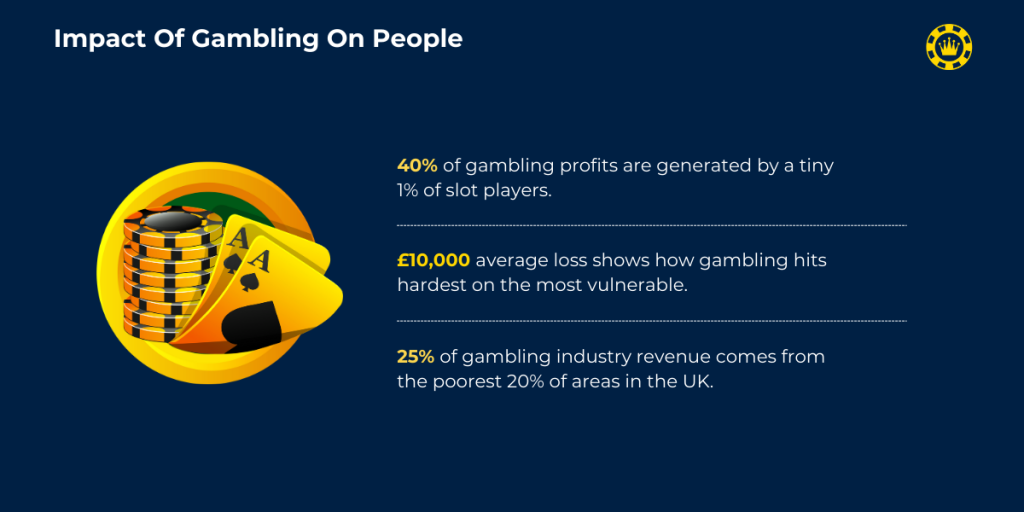
The poorest 20% of the area in the United Kingdom contributed 25% to the gambling industry’s revenue. These numbers further highlight that the impact of gambling is not spread evenly. The most financially struggling communities are more likely to be hit the hardest.
Source: The Guardian
What Is The Average Gambling Debt In The UK?
The average value of gambling debt was estimated to be £10,000 in 2021.
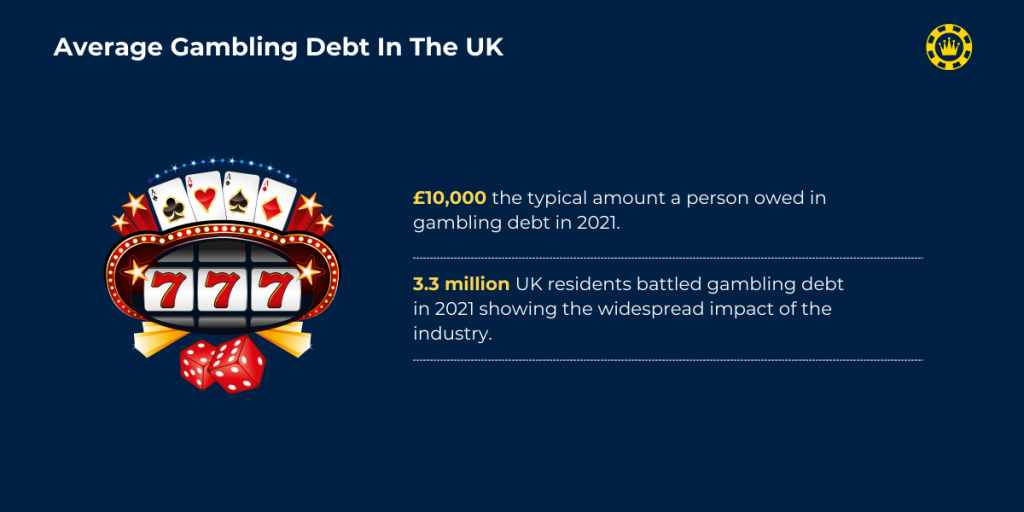
The same report further highlights that almost 3.3 million people in the United Kingdom were dealing with gambling debt in that year.
This shows just how widespread the issue has become, affecting not only finances but also people’s mental health, relationships, and overall well-being.
Source: Citizens Advice
Is Gambling A Big Problem In the UK?
A recent survey in Great Britain revealed that 2.5% of adults are struggling with problem gambling.
That is around 1.3 million people. Just a few years ago, this figure was reported as only 0.3%, which means the issue may now be eight times more widespread than previously thought.
Back in 2018, around 0.5% of adults in the UK were reported to be struggling with problem gambling. Additionally, the same report showed that about 3.8% of U.S. adults were at high risk of developing a gambling addiction.
These figures show that gambling harm in the UK is growing rapidly, and more people are now vulnerable than ever before.
Source: The Guardian, GOV.UK
Gambling Addiction Statistics
Nearly 2,000 people were referred to NHS gambling clinics in England between April and September this year.
This was an increase of 800 referrals recorded in the same period in the last year. This marks an alarming 130% increase, showing how fast the demand for help with gambling addiction is growing.
To meet this rising demand, the NHS has doubled its number of clinics, now operating 15 specialist services across the country. These clinics offer a wide range of support through mental health professionals, psychiatrists, and peer support staff, helping individuals rebuild their lives and manage addiction more effectively.
Source: NHS England
In Great Britain, adults aged 25 to 34 make up the largest group of gambling addicts, with 22.7% falling within the Problem Gambling Severity Index (PGSI) range of 1 to 27.
However, it’s the younger adults aged 18 to 24 who show more severe signs of addiction. In this age group, 11.7% have a PGSI score between 3 and 27, suggesting moderate to high-risk gambling behavior.
The data clearly highlights that as people get older, the severity of gambling addiction tends to decrease. Younger adults are not only more likely to gamble but also more likely to face harmful consequences.
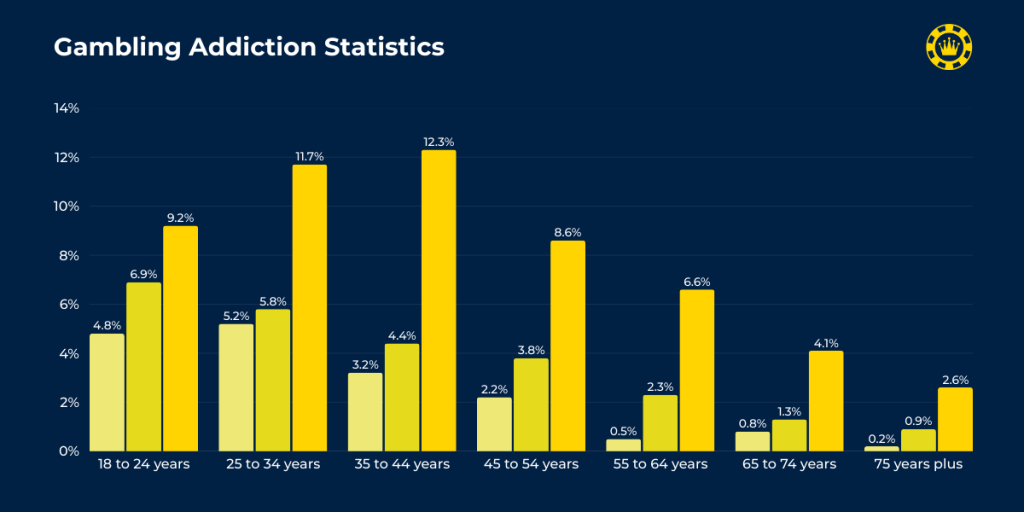
The following table highlights how gambling addiction is spread across age groups in Great Britain based on PGSI scores:
| Age Group | PGSI score of 8 to 27 | PGSI score of 3 to 7 | PGSI score of 1 or 2 | PGSI score of 0 | Not gambled in past 12 months |
|---|---|---|---|---|---|
| 18 to 24 years | 4.8% | 6.9% | 9.2% | 31.9% | 47.1% |
| 25 to 34 years | 5.2% | 5.8% | 11.7% | 39.3% | 38.1% |
| 35 to 44 years | 3.2% | 4.4% | 12.3% | 45.9% | 34.2% |
| 45 to 54 years | 2.2% | 3.8% | 8.6% | 48.7% | 36.8% |
| 55 to 64 years | 0.5% | 2.3% | 6.6% | 54.3% | 36.4% |
| 65 to 74 years | 0.8% | 1.3% | 4.1% | 52.4% | 41.5% |
| 75 years plus | 0.2% | 0.9% | 2.6% | 45.7% | 50.6% |
Source: Statista
Behind the Gambling Industry:
Conclusion: Gambling Harm Costs The Uk Government £412.9 Million Every Year
Gambling in the UK is resulting in unprecedented costs for individuals and society. On average, residents lose over £2,000 each year to online gambling, with more than 420,000 individuals losing at least that amount in a single year.
Additionally, the financial burden of gambling-related harm is over £412.9 million annually for the UK government, and the typical gambling debt is around £10,000.
The data also indicates a rise in addiction, with nearly 2,000 individuals referred to NHS gambling clinics. Young adults, particularly those aged 18 to 24, are exhibiting the most severe symptoms of gambling addiction.
